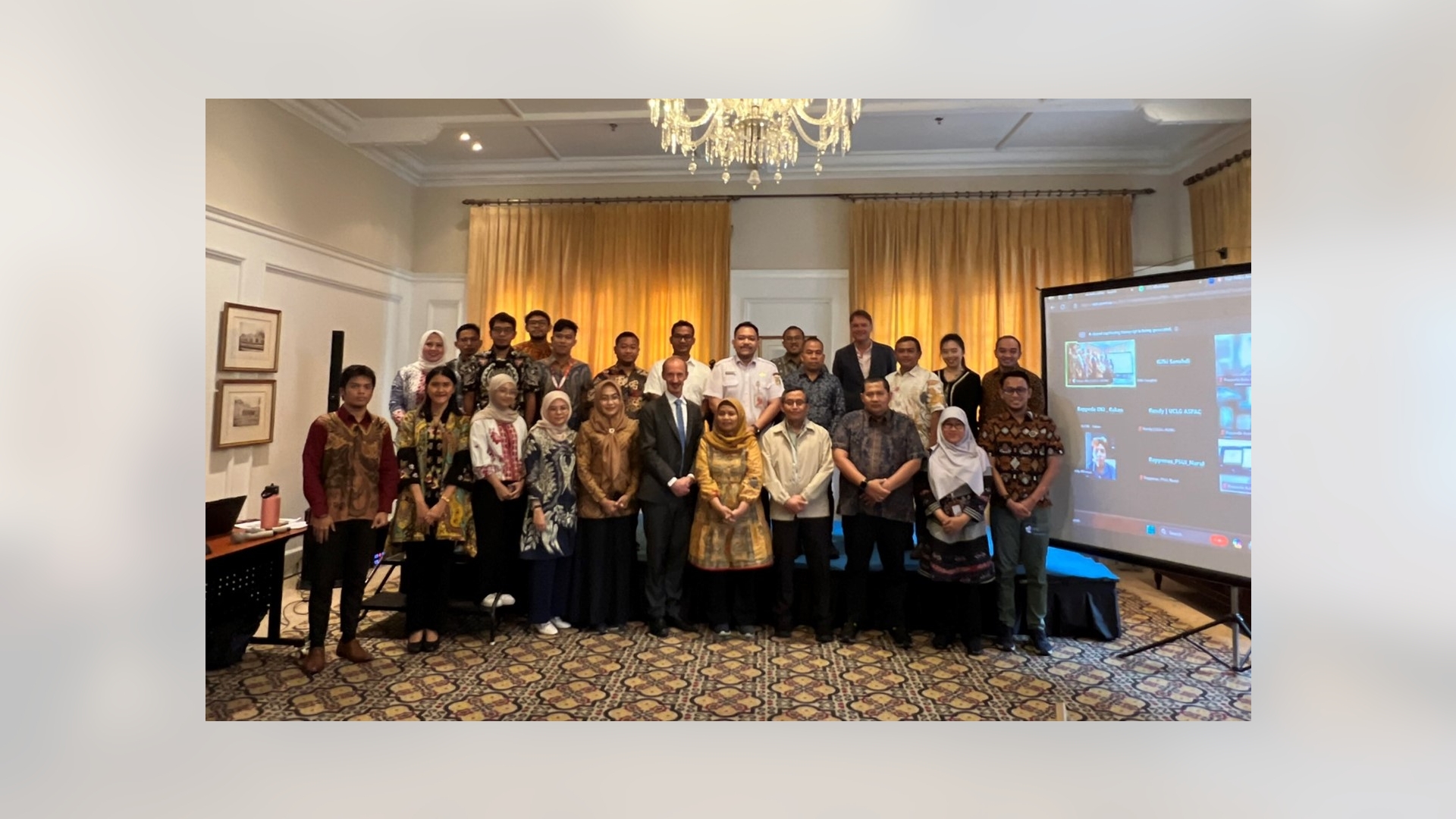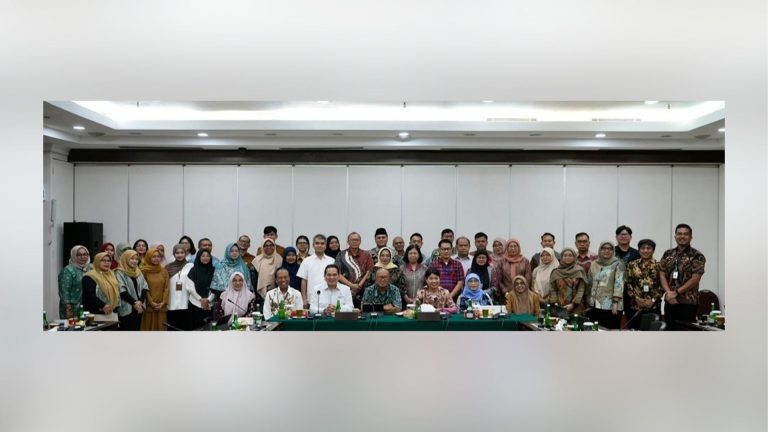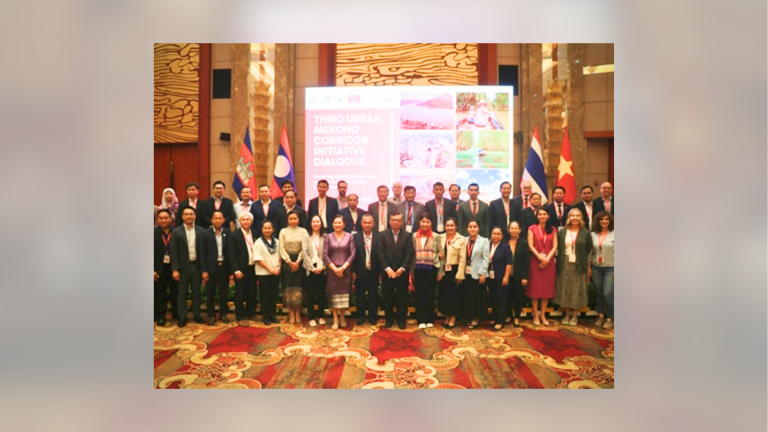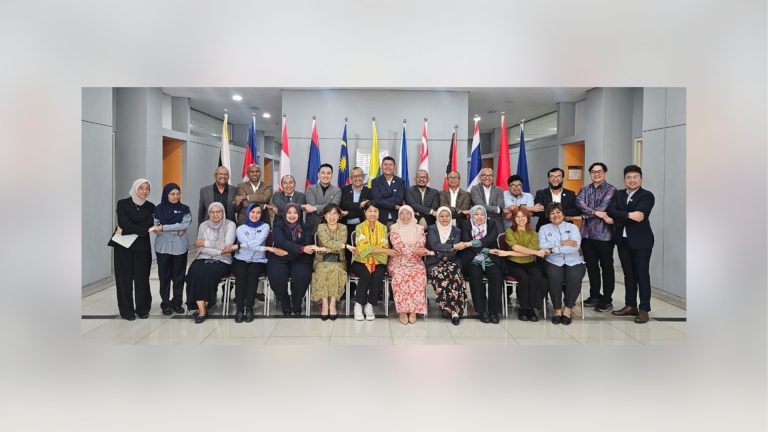June 5, 2024 | UCLG ASPAC,under the framework of the Urban-Act programme, organised a Focus Group Discussion (FGD) on Policy Review for Low Carbon and Climate Resilience in Jakarta on June 5, 2024. Participants shared findings on the vertical integration policies for low-carbon and climate-resilient development in Indonesia and gathered valuable feedback and input on the draft policy review which was one of the outputs from the Urban-Act Project to support the alignment of climate policies in Indonesia. The event gathered 30 key participants from line ministries, including the National Development Agency (BAPPENAS) and the Ministry of Home Affairs (MoHA) of Indonesia, representatives of local governments, including the Local Development Plan Agency of North Sumatera, West Sumatera, Medan City, and Padang City, university and development partners.
The FGD commenced with an opening remark by the Secretary General of UCLG ASPAC, Dr. Bernadia Irawati Tjandradewi, who highlighted the importance of a collective commitment to addressing climate change. She stressed the need for the vertical integration of climate policies at both national and local levels to ensure effective and sustainable climate action, encouraging active participation and collaboration among stakeholders.
The Director of Environment Affairs at BAPPENAS, Mr. Priyanto Rohmattullah, then elaborated on Indonesia’s policies for Low Carbon and Climate Resilient Development as outlined in the Long-Term National Development Plan (Rencana Pembangunan Jangka Panjang Nasional/RPJPN) 2025-2045 and Medium-Term National Development Plan (Rencana Pembangunan Jangka Menengah Nasional/RPJMN) 2025-2029. He emphasised that these policies are the “backbone” for Indonesia to “build back better,” aiming for a more resilient, sustainable, and inclusive economy, with multi-stakeholder collaboration being crucial for successful implementation.
Additionally, Mr. Heinrich Gudenus, the Director of the Urban-Act project, delivered a noteworthy remark that highlighted the objectives of the Urban-Act initiative. He emphasised the project’s commitment to integrating climate action within urban development to foster low-carbon and climate-resilient cities.
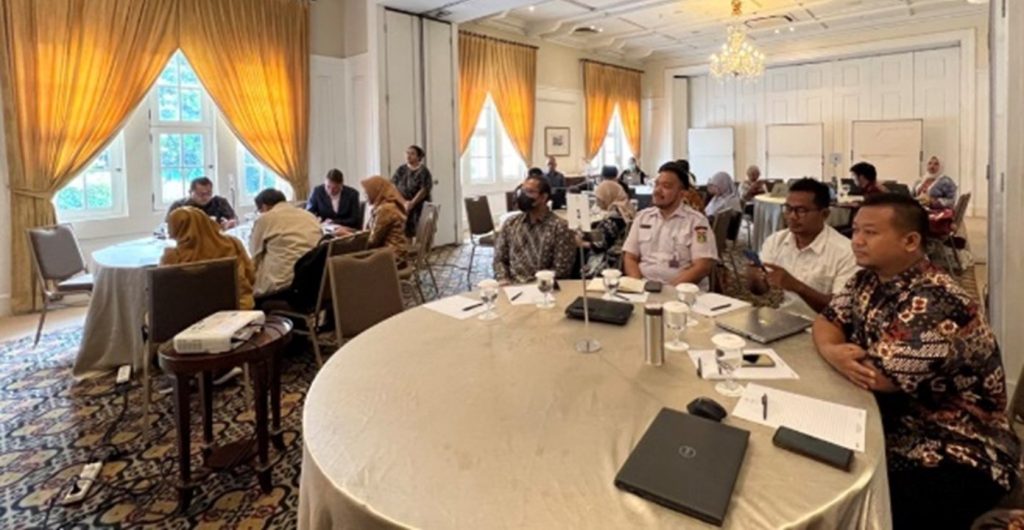
Some initial findings of the policy review revealed that priority programmes related to low carbon and climate resilience are aligned with national development, particularly at the provincial level. While low-carbon development has received more attention than climate-resilient development, cities have implemented numerous development programmes and activities in priority sectors. However, these initiatives might have not yet specifically targeted climate goals, as climate change has not been integrated into the Regional Planning Information System (Sistem Informasi Perencanaan Daerah/SIPD).
After sharing the findings and recommendations of the policy review, the panellists’ feedback session was conducted to gather perspectives from various stakeholders to enrich the comprehensive policy review, highlight gaps in low-carbon and climate-resilient development policies, and offer perspectives to enhance the overall analysis, ultimately supporting Urban-Act pilot cities Medan and Padang in achieving sustainable development targets. Panellists included representatives from multi-level governance including national level (BAPPENAS, MoHA), provincial level (local development planning agencies from North Sumatera and West Sumatera), city level (local development planning agencies from Medan and Padang), as well as university represented by CCROM-SEAP IPB.
The final session was a group discussion aimed at gathering diverse perspectives from participants to enhance policy analysis and recommendations by discussing current conditions, challenges, strategies, and relevant stakeholders. It was concluded that, despite the existence of regulations related to low carbon and climate resilience under the RPJMN 2020-2024, there is still suboptimal integration and gaps in translating these targets at the local level. Opportunities include: 1) developing an integrated monitoring and reporting system, 2) establishing a national task force, and 3) involving all stakeholders to ensure the alignment of the low-carbon and climate-resilient development targets and actions between national and local levels.
The follow-up action of the FGD involves incorporating feedback into the draft policy review. This input is expected to be integrated into the upcoming RPJMD documents of both Padang and Medan. Additionally, it will serve as a baseline for identifying climate-related activities for potential funding and as a learning tool for inter-city climate planning in the following months.
Urban-Act: First Masterclass Regional Training
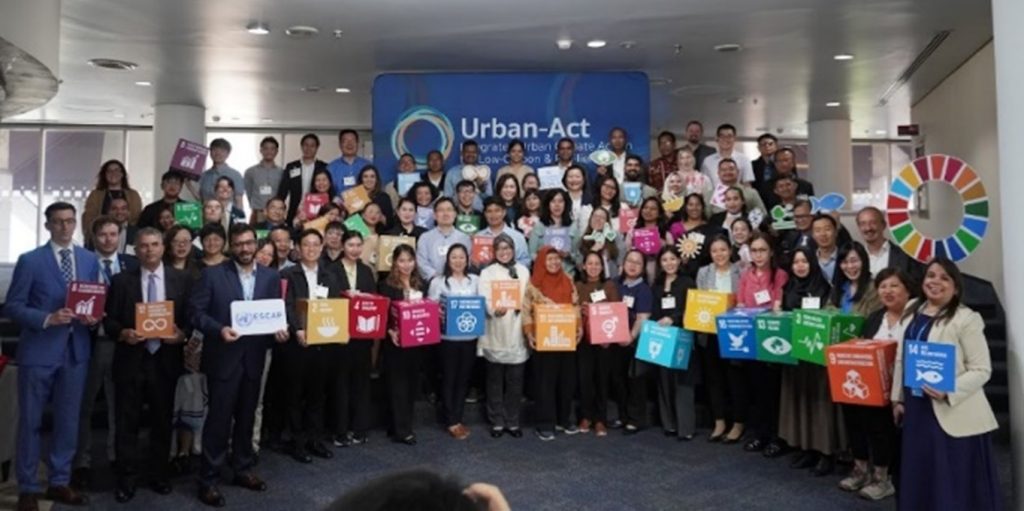
June 12-13, 2024 | Bangkok – UCLG ASPAC, under the framework of the Urban-Act project, supported the United Nations Economic and Social Commission for Asia and the Pacific (ESCAP) and the Melbourne Centre for Cities at the University of Melbourne in delivering the First Masterclass session on multi-level climate action, vertical and horizontal climate governance and integration.
This event was organised as part of the regional training to increase the knowledge of national and city stakeholders on low-carbon and resilient urban development, climate-sensitive planning, and inclusive urban climate action. It was attended by 50 participants from five pilot countries representing national and local governments who are actively working in the broad area of climate resilience, and climate change, including both mitigation (emissions-reduction) and adaptation (dealing with climate impacts). UCLG ASPAC ensured the participation of city representatives and facilitated the sessions, particularly within the context of the Asia-Pacific region.
The event is part of three masterclass-style modules delivered in 2024 (one in-person, two online), and one in-person synthesis workshop planned to be organised at the World Urban Forum 12 in Cairo, Egypt. The training concluded with a presentation from GIZ Bangkok regarding the Urban-act early-stage project preparation for supporting cities to leverage additional technical assistance for project financing. Before the synthesis workshop in November 2024, a series of online training sessions will be conducted with the topics of SDGs localisation and climate action synergies, enabling cities’ climate financing and project preparation.








